- Home
- Tim Lebbon
Tales of Noreela 04: The Island Page 8
Tales of Noreela 04: The Island Read online
Page 8
He had never witnessed an invasion from the sea. No one had, ever, other than those ancient Noreelans who had watched the mythical Violet Dogs stream ashore. Not far from here, Kel thought. A hundred miles north, that’s where they lay claim to having suffered the Violet Dog invasion. Not so very far away …
He walked carefully along to the harbor. Soon, he would be one of the crowd. He looked longingly up at Drakeman’s Hill, but between him and the hill were dozens of buildings smashed down into alleys and roads, bodies floating in mud, and things washed in from the sea.
Most of those things were dead, but he saw movement here and there that he did his best to avoid. He’d spent five years living in a fishing village; he knew there were dangers out there. He had already seen the scarlet splashes of exploded sea anemones, some of them poisonous, and he feared that larger things could stalk the ruins.
The first of the boats, a small vessel, was swinging its bow so that it could edge against the seaward side of the mole. A few militia had gone as far as they could, stopping only where the first major wound in that huge construction prevented them from advancing any farther. They hung on to bows and crossbows. Swords and other weapons were slung haphazardly and hurriedly about their bodies. They did not look very intimidating. A dozen more militia waited where the mole reached the harborfront, and they had arranged a pile of debris before themselves as a rough barricade. But it would hardly stop a determined child, and from their stunned expressions, Kel knew that such defenses were symbolic at best. If there was to be a fight, it would not last long.
Two machines sat amidst the crowd of people on the harbor. One of them seemed motionless, but the other floated on thin tendrils of loosely hinged metal, each one lightly touching the ground. Kel could not see its Practitioner, but it seemed to have an air of readiness about it. He’d heard of machines being used in combat, though he had never witnessed it. He wondered what that one—which looked as though it had previously been used to load and unload heavy fishing baskets from trawlers—could do, were it called upon to act.
He drew level with the first of the people and went on, passing through the crowd so that he stood close to where the mole connected to the harbor. The machine stood before him, and a short, old woman was crouched beside it.
“What can it do?” he asked.
The woman glanced back at him and he saw fear in her eyes. “Maybe not enough,” she said.
“Hold back!” one of the militia said angrily. “We can’t assume anything. Hold back, Mygrette, or you’ll be the cause of something unforgivable.”
“Jus’ being cautious,” Mygrette said. Kel knew her—an old witch who lived up on the cliffs just beyond the village limits. She put more value in machines and the mechanics of magic, rather than the mind games played by Namior and her family. Kel was not sure which he trusted less.
“They see you and that machine ready to attack and—”
“If they’re peaceful, they’ll not be looking for a fight,” Kel said. The man turned on him.
“And what do you know, wood-carver? You’re not even one of us!”
“So we fight amongst ourselves because you don’t want to fight them?” a short woman asked. She smiled at Kel, but he could see the anxiety there.
The whole crowd thrummed with a nervous energy. So much potential, so much history ready to change or be made. Kel still felt the urge to run, but the time for escape had passed. The best he could do was to find out more.
They all heard the thump as the boat struck the stone mole. Ropes were flung up from the vessel, and two of the waiting militia caught them and tied them on. Three others held back, arrows strung, glancing back at the crowd, then down at the boat.
Kel stretched, but he could see no more. The mole curved out around the harbor, and the visitors were still hidden from sight.
The watchers mumbled and whispered. Mygrette touched the machine and hummed something Kel could not hear. He took a few steps forward.
They saw the first person climb one of the tied-on ropes and stand on the mole. It was a tall, thin woman with dark skin and pale gray hair, wearing dark slacks and a leather tunic. A knife was visible on her belt, but Kel saw no other weapons. She could have been a Noreelan.
She stood on her own, smiled at the several militia spaced around her, then looked past them at the ruined village. The smile dropped from her face. She looked north first, across the swollen river and past the broken bridge to the side of the village where Namior lived. Then her gaze swept slowly south, across Drakeman’s Hill, down to the harbor, finally resting on the people assembled there.
Kel felt her looking directly at him and he stared back. He wondered if everyone gathered felt the same.
The woman’s face crumpled for a beat, and Kel was certain he saw the glitter of tears. Then she gathered her composure and took two steps forward, bowing her head briefly at the militia and talking to them in subdued tones. Above the swell of the sea and the roar of the river, no one on the harbor could hear what she had to say. One of the militia turned and looked at the ruins of the harbor, but his expression offered no clue as to their discussion. The woman raised her arms once, slowly, but Kel could not tell whether there was any special significance to the gesture.
Then one of the militia broke away and trotted back along the mole, taking the arrow from his bow and slipping it back into the quiver slung at his hip. His companions were helping several other visitors up from the boat, and they stood in a small group around the tall woman. They all looked human. But then, Kel knew, so did the Strangers he had killed. Clothed, at least.
As the militiaman drew closer, so the questions began. Who are they… what do they want… where do they come from… where’s the island… what… when… how …
The militiaman—whom Kel knew as Vek, a strong and capable soldier for such a small village—raised his hands and said nothing. When the clamor died down he made a point of scanning the crowd slowly, trying to catch everyone’s eye. When his gaze slipped past Kel, Kel tried to read something in his eyes. Is he scared? Is he excited? But Vek betrayed nothing.
“Where is Chief Councilor Eildan?”
Kel looked around with everyone else, sharing the surprise that the head of the village did not seem to be present.
“Here!” a voice called. Eildan emerged from the wreckage of a building, shoving past the slumped, dripping remnants of a thatched roof. In one hand he clasped a large fishing harpoon, and he looked different from the way Kel had ever seen him. Ready for a fight, Kel thought, and his admiration for Eildan rose. He knew from village gossip that the Chief Councilor had been in the militia in Long Marrakash thirty years before, and there were rumors that he’d fought in some border skirmishes with the several independent states huddled in the mountains north of that once-great city. He certainly carried the scars of war, but he was always humble, quiet and secretive about his past. Here is my concern, he would say, banging a table or stamping a foot, marking the ground he did his best to control.
“Chief, the visitors request an audience with you,” Vek said.
“Visitors from where?” Eildan said. He looked past the assembled Noreelans, past Vek, and out to where the unknown people stood on the ruined mole.
“The tall woman’s name is Keera Kashoomie. She’s an emissary. She says she has much to explain, but first of all she wants to offer her apologies.”
Eildan looked back into the ruined building from which he had emerged. “There’s a dead child in there,” he said. “She looks perfect, her skin untouched, but her lungs are full of water, and her head… is soft… from where something hit her. She’s a daughter of my village. Perhaps her parents are dead, too. Perhaps …” He swept his hand slowly before him, as though offering the people something in his palm. “Perhaps they’re here.” He rested the tip of his harpoon on the layer of mud coating the harborside, letting it sink in slowly. “I’m afraid,” he said quietly. He spoke with great dignity and honesty, expressing what most ot
her people felt.
Even Kel. Fear, yes, he felt that, cold and tense down his spine. But even if this was the invasion the Core had dreaded and fought against for centuries, he could not help but feel enthralled by what was about to happen.
Vek walked past the makeshift barricade to Chief Eildan, but when he spoke he made sure everyone else could hear. “She comes from the island, which she calls Komadia. She says her land is cursed. The only way her people have found to combat the curse is to repair the damage they do, and try to make amends. She says …” He trailed off, as though suddenly nervous at the many people watching.
“Yes, Vek?”
“She says they have many great technologies they can share with us.”
“Let ’em have this!” Mygrette said, touching the machine by her side. It rose up on metal legs and several long, thin tubes suddenly sprouted from its back like spines, twisting and waving at the air.
Kel shrank back, thinking of the proboscises on a Stranger’s back.
Mygrette gestured at the machine and the tubes vented fire.
“Mygrette!” Eildan said. He came forward, still hefting his harpoon, but Kel could already see that his mind was made up. “Not for now,” he whispered to the old witch. “We need caution, but not this. Not yet. Let’s see what they have to say first.”
“Pah!” The witch squatted again, the machine resting down beside her.
Eildan turned back to Vek. “Bring her and those with her. If we can find a room undamaged by the disaster they brought with them, we can talk. Tell her that the other boats stay out where they are. They can drop anchor, but I don’t want another vessel docking in my village without permission.”
“If they’re here to invade, they’ll do it anyway!” someone said.
Eildan smiled without humor. “Then we’ll know the truth soon enough.”
Vek nodded to the Chief and ran back along the mole. Kel saw him converse with the tall woman for a moment, then she nodded and spoke to her companions.
“They speak Noreelan,” Kel said.
The man standing beside him, a tall farmer from the heights above Drakeman’s Hill, laughed. He had his two little girls with him, but Kel knew his wife had passed away three years earlier. Pavmouth Breaks had closed down for a day for the funeral, and her ashes had gone into the sea. “Of course!” the farmer said. “They’re from Noreela, somewhere. Out along The Spine, perhaps. One of the farthest islands.”
“The Spine never ends,” the younger of his girls said.
“Well, I don’t know about that,” her father replied. “But it is very long.” He frowned then, looking out past the massed boats at the island they had sailed from. “Some magic, perhaps,” he said, quieter. “Some cursed magic.”
“I hope they are from The Spine,” Kel said, but when the farmer questioned him with a raised eyebrow, Kel took a few steps closer to the edge of the harbor. The water was still several steps higher than usual, and filled with debris. A body floated facedown some way out, bobbing gently with the waves. Its hair was long, and silver scuttling things darted through it, climbing out of the water and sinking back in when they had what they had come for. The body’s back was raw and red.
Kel knew what he must do. There was no use pretending, no point in waiting to see how this resolved itself. If these were Strangers and this was the invasion, bringing the fight forward would change little. If anything, it might damage whatever plans they had. Perhaps they wanted to take Pavmouth Breaks subtly, forming a quiet beachhead from which they could expand out into Noreela. Make it difficult for them here, turn their trick against them, and maybe he would even create a chance at fighting them off.
If they were not Strangers, and this really was something else, then some small ignominy would be an acceptable price to pay.
Kel edged close to Chief Eildan, watched the visitors begin their walk along the mole, and when they stepped foot on Noreela soil, he prepared to expose whatever the truth might be.
HE TRIES TO chant O’Peeria’s wraith down into the Black, but he has never been adept at such a task. His grief puts him at a disadvantage. Pelly has dragged Rok’s corpse away and hidden it in some undergrowth, and she is kneeling a dozen steps away, crying, and holding both hands to her shattered cheek because the tears hurt so much.
Each chant Kel begins ends in pain. He tries to focus on O’Peeria’s wraith, but his concentration is ragged, his perception poor.
He tries, and tries, but eventually Pelly nudges him with her knee. “Voices,” she says, the blame in her tone obvious. “We have to go.”
“I can’t until—”
“Please yourself.” She stumbles away into the night.
Kel looks down upon the dreadful ruin of O’Peeria’s body, whispers an apology, and follows.
VEK CAME FIRST, two more of his militia walking on either side of him. These two still had their bows at the ready with arrows strung, but Kel had the unsettling impression they were to protect the visitors as much as the villagers. Behind them came the tall woman, Keera Kashoomie, and the four other visitors who had disembarked with her. There were two men and two women, and apart from their clothing, Kel could see nothing to set them apart from Noreelans. One of them even carried a swirling pattern of tattoos up the side of her neck and into her hairline, reminiscent of the body art he had seen Cantrass Angels excel at on one of his visits to the north. The clothes would have looked more at home in Noreela City than in a small fishing village such as this—leather jackets rather than hessian, canvas trousers, heavy leather boots. The quality was uniformly good.
They carried weapons, but nothing excessive. He saw knives, and the two women carried long, thin swords in elaborate sheaths slung from their belts and tied down their legs. They looked more ceremonial than functional.
The Core had found, tracked and killed as many women Strangers as men. Their distinguishing features had always been the same.
All five visitors wore jackets with high collars, covering their necks.
“Maybe you have gills,” he whispered. We’ll all see soon.
The visitors looked around at the village and its inhabitants, and the expressions on their faces were of stunned disbelief, mixed in with a tinge of guilt. If they were feigning their emotions, Kel decided, they were doing so very well. But Strangers always had been masters of deception, adept at blending in and being a part of the land they had come to spy upon.
He slipped his hand into his trouser pocket, through the tear in the pocket’s side and around the hilt of the small knife he kept strapped to his bare thigh. This blade had once opened a Stranger’s throat while O’Peeria and another Core member held her down. They had run, then, letting the wild wraith thrash itself down to nothing. The blood had been cool by the time he’d wiped it off, and when they returned, the Stranger’s body had melted beneath the ash of its final exhalation.
He stood ten steps closer to the water than Chief Eildan, knowing that the militia’s attention would be on the Chief when they got that close, not the people milling around him.
Vek passed and threw Kel a half smile. They had drunk with each other a few times in the Dog’s Eyes. As Kel drew the knife and stepped forward, he hoped that they would drink together again.
The woman who called herself Keera Kashoomie offered no resistance, and neither did the other four visitors. The woman’s swords remained in their sheaths. To the tune of mixed gasps and cries, Kel pushed Kashoomie aside, stepped behind her and clasped his arm around her throat. He held his knife ready to push between her ribs and into her heart. Then he backed toward the water, trying to make sure no one could circle around behind him.
“Don’t do anything foolish,” Eildan said calmly, and for a beat he was the only one to speak. Then voices rose in the crowd, a few apparently in support of what he was doing, and the militia emerged from behind their barricade and closed in, confused about which way to turn. Vek barked an order and several of them formed a barrier, cutting off Kel and the woman
from everyone else. Vek himself came forward.
“Kel… now, we need caution, I agree. But they’ve done nothing yet that leads me to think—”
“Five beats, Vek,” Kel said. “Then we’ll see just how much our lives have changed.”
Keera Kashoomie shifted slightly beneath his grasp, and he felt her swallowing in fear.
“This knife,” he whispered, so only she could hear. “It has parted flesh like yours before. Let’s see if it smells another enemy.”
“Please, we’ve no choice in what we do. We’re here because—”
“Hush,” Kel said. He lifted the knife quickly to the woman’s neck, using its thin blade to pierce her collar and open it with a sharp upward slice. Her skin beneath was dark and bare, showing no sign of gills or any other marks.
“What are you doing?”
“Jacket off,” Kel said. “Make one move I don’t like and I’ll open your throat. Whatever you are, I’m quicker than you.”
The two women visitors each had a hand on her sword handle, but Kel saw the slight shake of Keera’s head that dissuaded them from drawing. If that happened, the militia might panic and attack. Confusion charged the air, and he could taste the tension.
Keera slipped the jacket from her shoulders and let it fall to the muddy ground. Beneath, she wore a wrinkled silk shirt, and Kel caught a waft of her body odor, earthy and somehow sensual …
“Don’t try to hex me,” he said.
“Hex?”
He pulled her back against him with his arm around her neck, slipped the knife behind her shirt collar and pulled down. It took several slices to open the shirt all the way to her belt. She was bare beneath, her skin covered with a fine sheen of sweat.
There were no protuberances beneath her shoulder blades. No scars, no marks, no openings in the skin. Nothing.
Kel sighed and stepped back, dropping the knife. He started to shake, realizing only then how coiled he’d been, how ready to blow. If he had found a Stranger’s proboscises, he’d have cut the woman’s throat, and the harbor would have become a bloodbath. His plan had been to step back and fall into the filthy water, but he’d have been lucky to escape with his life, and the boats keeping a respectful distance would have sailed in and disgorged their invading army.

 Ten-Word Tragedies
Ten-Word Tragedies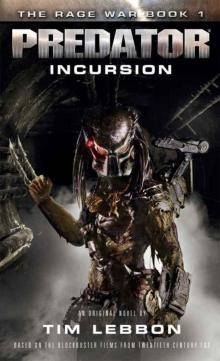 Predator: Incursion
Predator: Incursion Relics--The Edge
Relics--The Edge Firefly
Firefly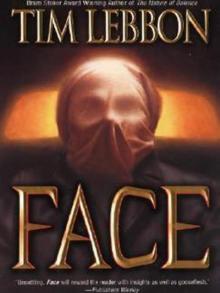 Face
Face Generations
Generations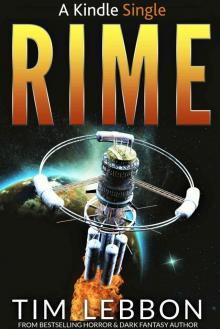 RIME (Kindle Single)
RIME (Kindle Single) Fallen
Fallen London Eye tc-1
London Eye tc-1 Kong: Skull Island
Kong: Skull Island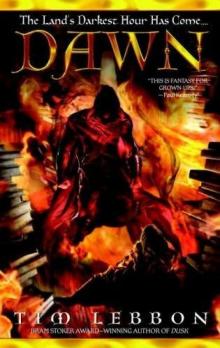 Dawn n-2
Dawn n-2 Into the Void: Star Wars (Dawn of the Jedi)
Into the Void: Star Wars (Dawn of the Jedi) The Everlasting
The Everlasting London Eye: 1 (Toxic City)
London Eye: 1 (Toxic City)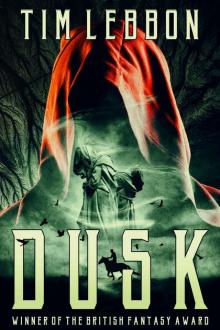 Dusk: a dark fantasy novel (A Noreela novel)
Dusk: a dark fantasy novel (A Noreela novel)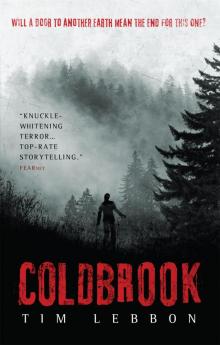 Coldbrook
Coldbrook Alien
Alien Dusk
Dusk The Cabin in the Woods
The Cabin in the Woods The Heretic Land
The Heretic Land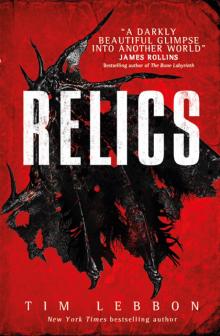 Relics
Relics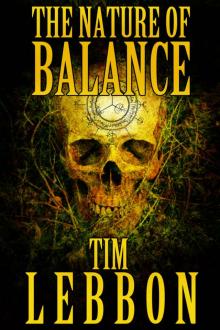 The Nature of Balance
The Nature of Balance Echo City
Echo City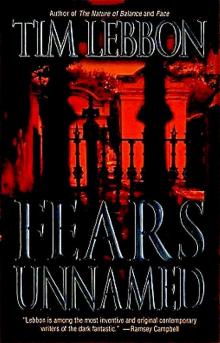 Tim Lebbon - Fears Unnamed
Tim Lebbon - Fears Unnamed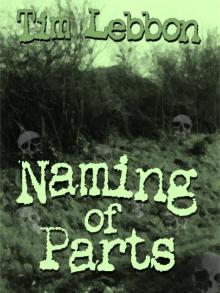 Naming of Parts
Naming of Parts Alien--Invasion
Alien--Invasion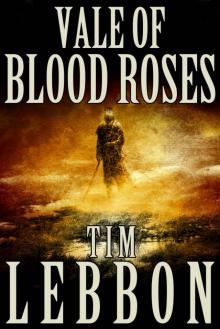 Vale of Blood Roses
Vale of Blood Roses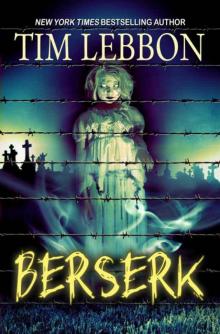 Berserk
Berserk Coldbrook (Hammer)
Coldbrook (Hammer) Contagion tc-3
Contagion tc-3 Reaper's Legacy: Book Two (Toxic City)
Reaper's Legacy: Book Two (Toxic City)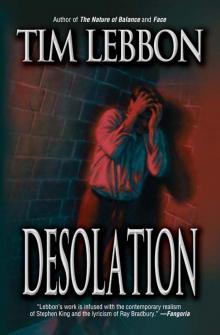 Desolation
Desolation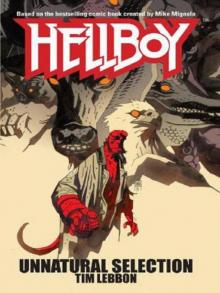 Unnatural Selection
Unnatural Selection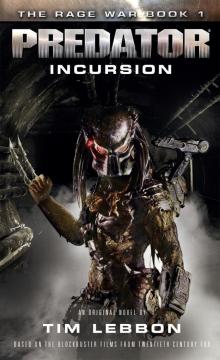 Predator - Incursion
Predator - Incursion London Eye
London Eye Contagion (Toxic City Book Three)
Contagion (Toxic City Book Three) The Silence
The Silence The Thief of Broken Toys
The Thief of Broken Toys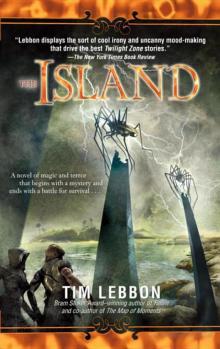 Tales of Noreela 04: The Island
Tales of Noreela 04: The Island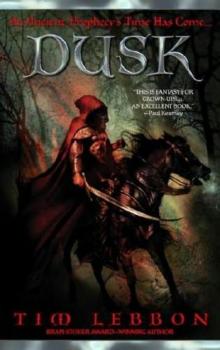 Dusk n-1
Dusk n-1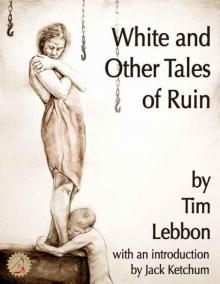 White and Other Tales of Ruin
White and Other Tales of Ruin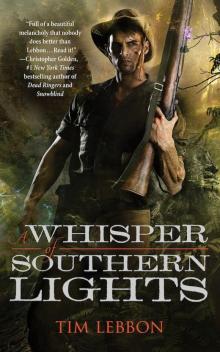 A Whisper of Southern Lights
A Whisper of Southern Lights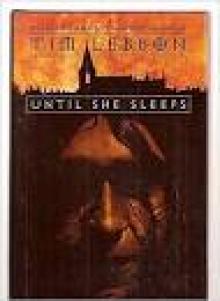 Until She Sleeps
Until She Sleeps Relics--The Folded Land
Relics--The Folded Land Reaper's Legacy tc-2
Reaper's Legacy tc-2 Alien: Out of the Shadows
Alien: Out of the Shadows Pieces of Hate
Pieces of Hate X-Files: Trust No One
X-Files: Trust No One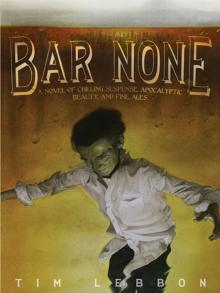 Bar None
Bar None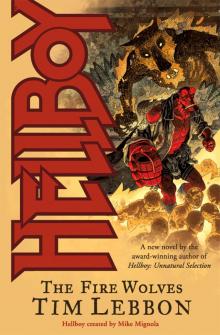 The Fire Wolves
The Fire Wolves